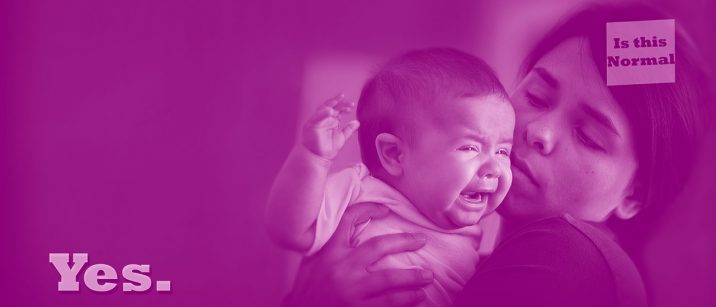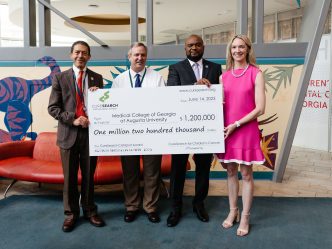The early months of raising a child can be stressful, as anyone who has been through it will tell you.
There is a time between 2 weeks and 4 months of age that can be particularly difficult, a stage of development the National Center on Shaken Baby Syndrome calls the “period of PURPLE crying.” During this time, a baby may cry for long periods, with no clear explanation as to why, and it might be very difficult to soothe the child.
“PURPLE crying” is a nationwide campaign now being taken on by the Children’s Hospital of Georgia as part of its efforts to prevent child abuse, including Shaken Baby Syndrome.
The acronym “PURPLE” stands for “Peak of crying,” “Unexpected,” “Resists soothing,” “Pain-like face,” “Long lasting” and “Evening” (when crying is most likely to take place).
The term “period” is used to emphasize that the crying has both a beginning and an end.
“We want to remind parents that it’s normal,” said CHOG Trauma Program Manager Kyndra Holm, who is heading up the campaign. “They’re still good parents and their baby is not crying because they’re doing something wrong.”
The hospital is raising awareness of this time in a baby’s life when parents could be most likely to become frustrated.
“[A parent may think] ‘Every day I’m coming from home and my baby is crying. Is it me?’ It’s not you, it’s the pattern,” said Holm. “Knowing that it’s not a reflection on you or the baby – that knowledge can be all the difference.”
In Georgia, 48 children are victimized by child abuse each day, according to the Children’s Advocacy Center. That averages to 1 child every 30 minutes, every single day in the state.
According to the Richmond County division of Family and Children Services, that county alone had 3,382 reports of child maltreatment in 2018, a rate significantly higher than that of the rest of the state of Georgia overall.
“I feel like it’s our responsibility as the children’s hospital for the region to be the tightest safety net possible for these kids, because they really are the most vulnerable people in our region, and it’s our duty to do the right thing by them,” said Holm.
Dr. Kevin Allen, a pediatric emergency medicine physician at CHOG and assistant professor in the Medical College of Georgia at Augusta University, is assisting in these efforts to raise awareness about child abuse in the area.
He said asking for help is key to preventing abuse.
“Definitely talk to your pediatrician, if you have children or have questions about what your children are doing,” he said. “Most pediatricians locally have either an on-call pediatrician or a nurse line who can answer general questions that you have.”
Read for more information on the Period of PURPLE Crying.
 Augusta University
Augusta University




